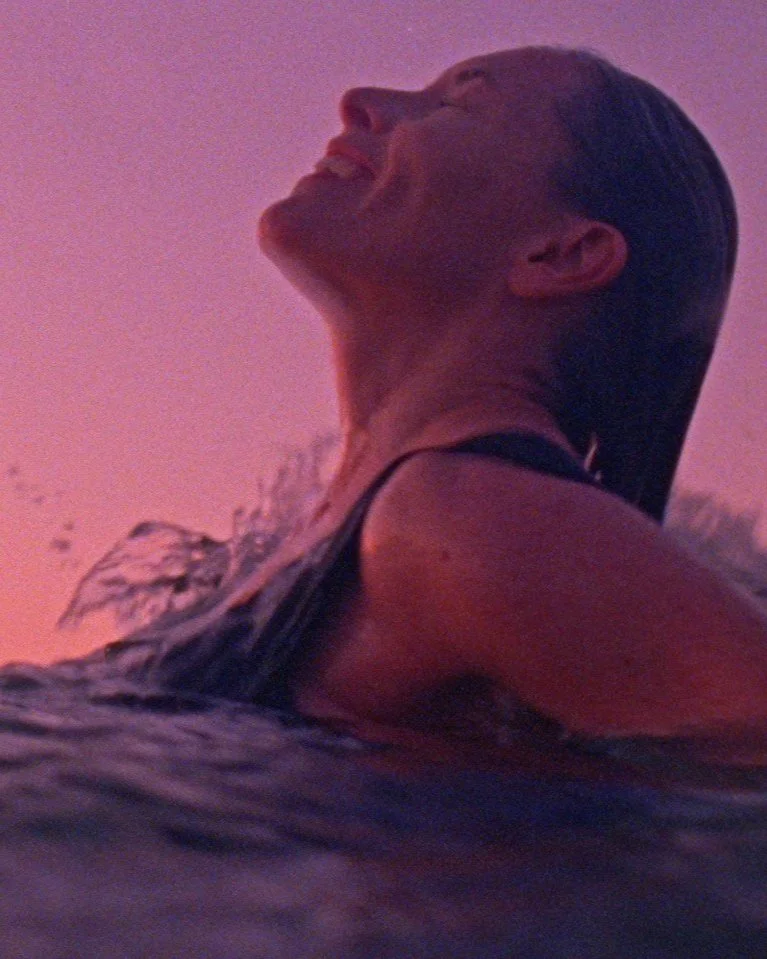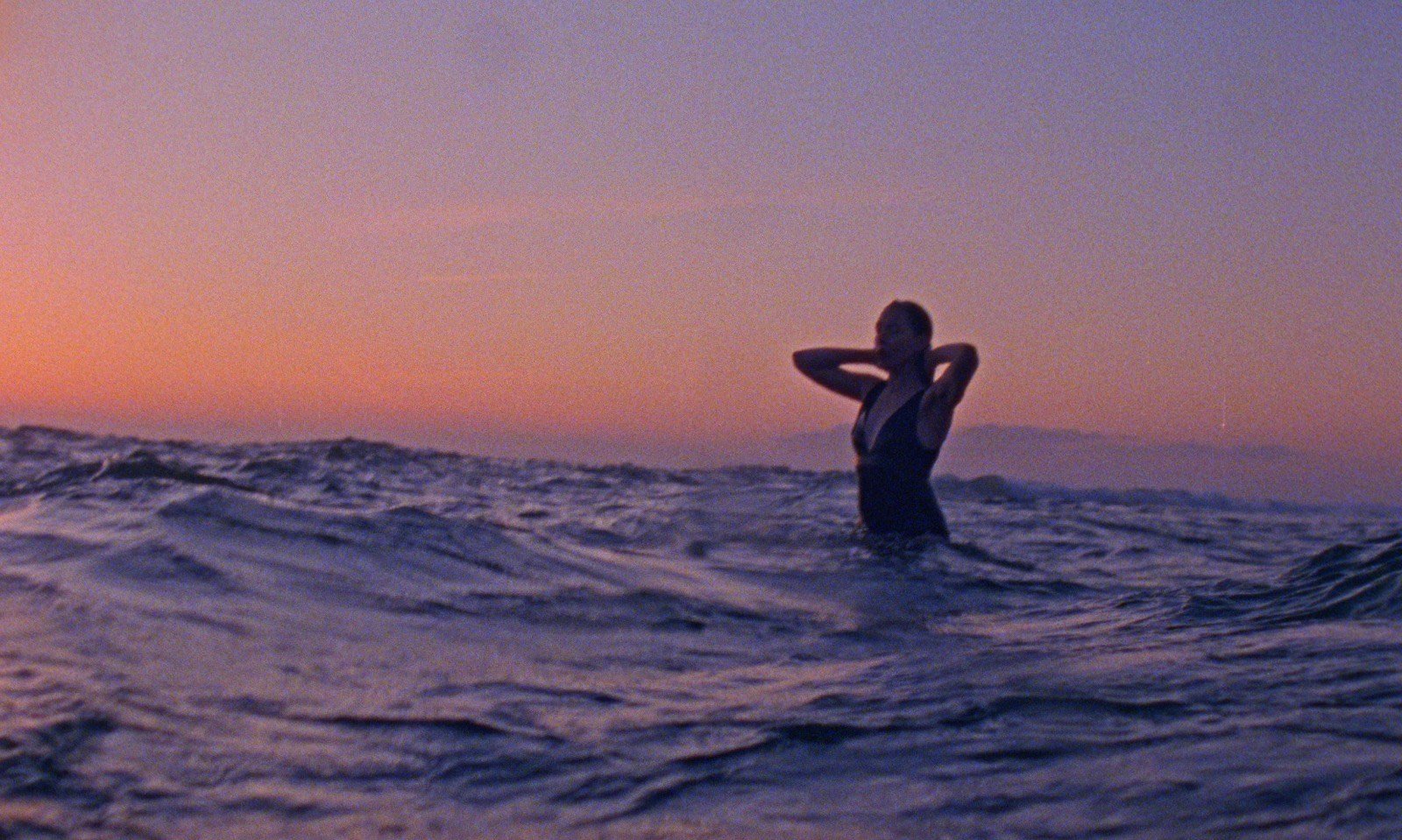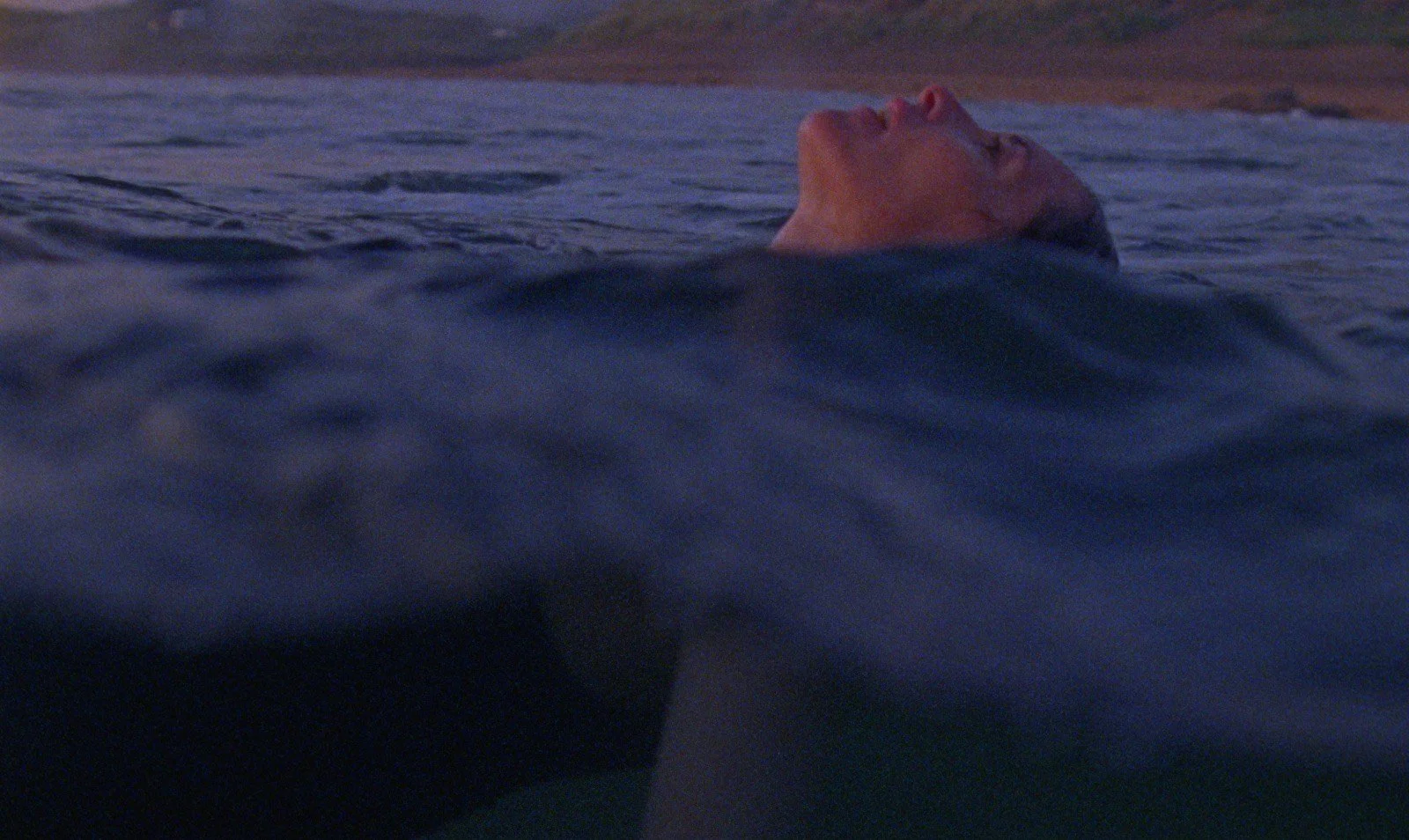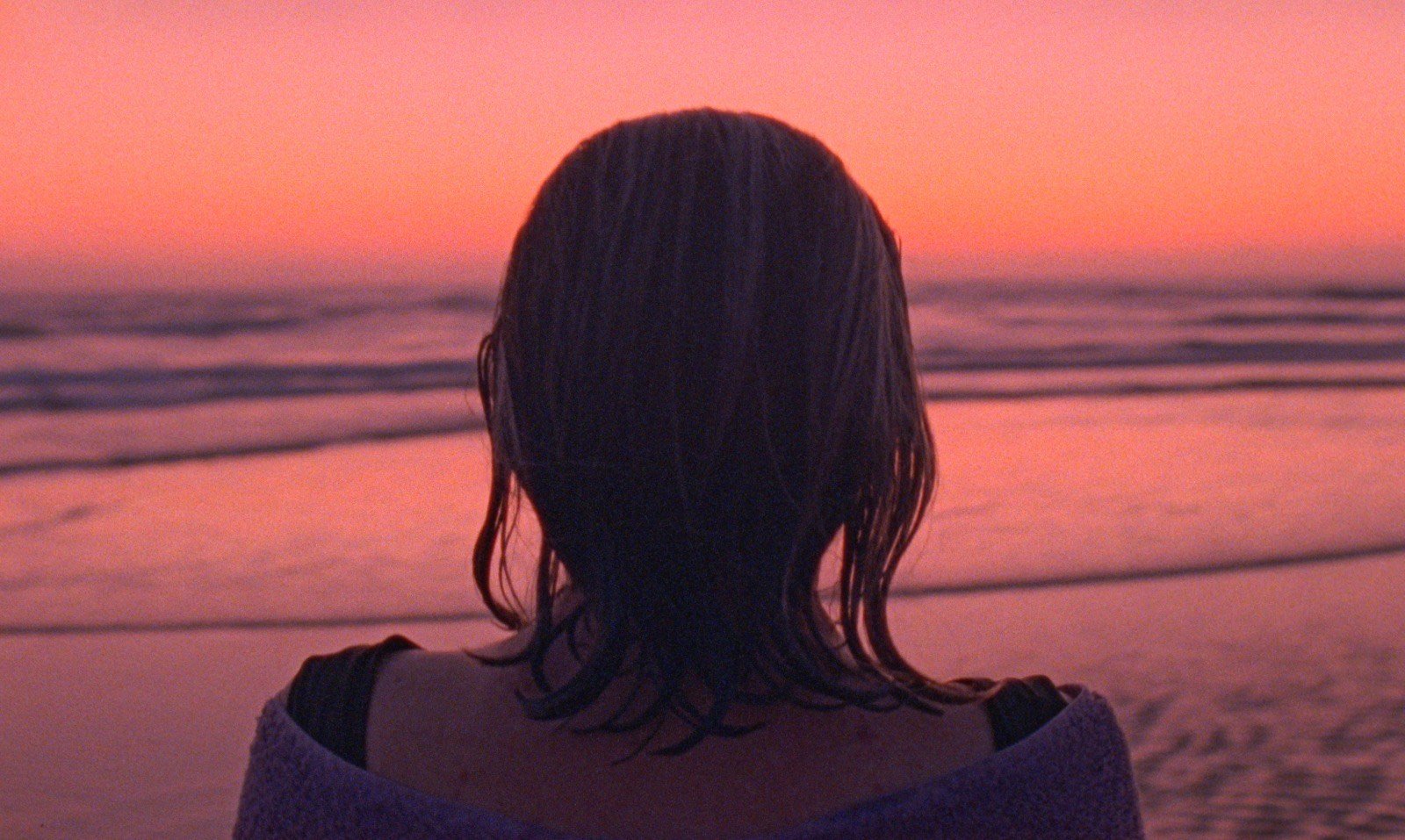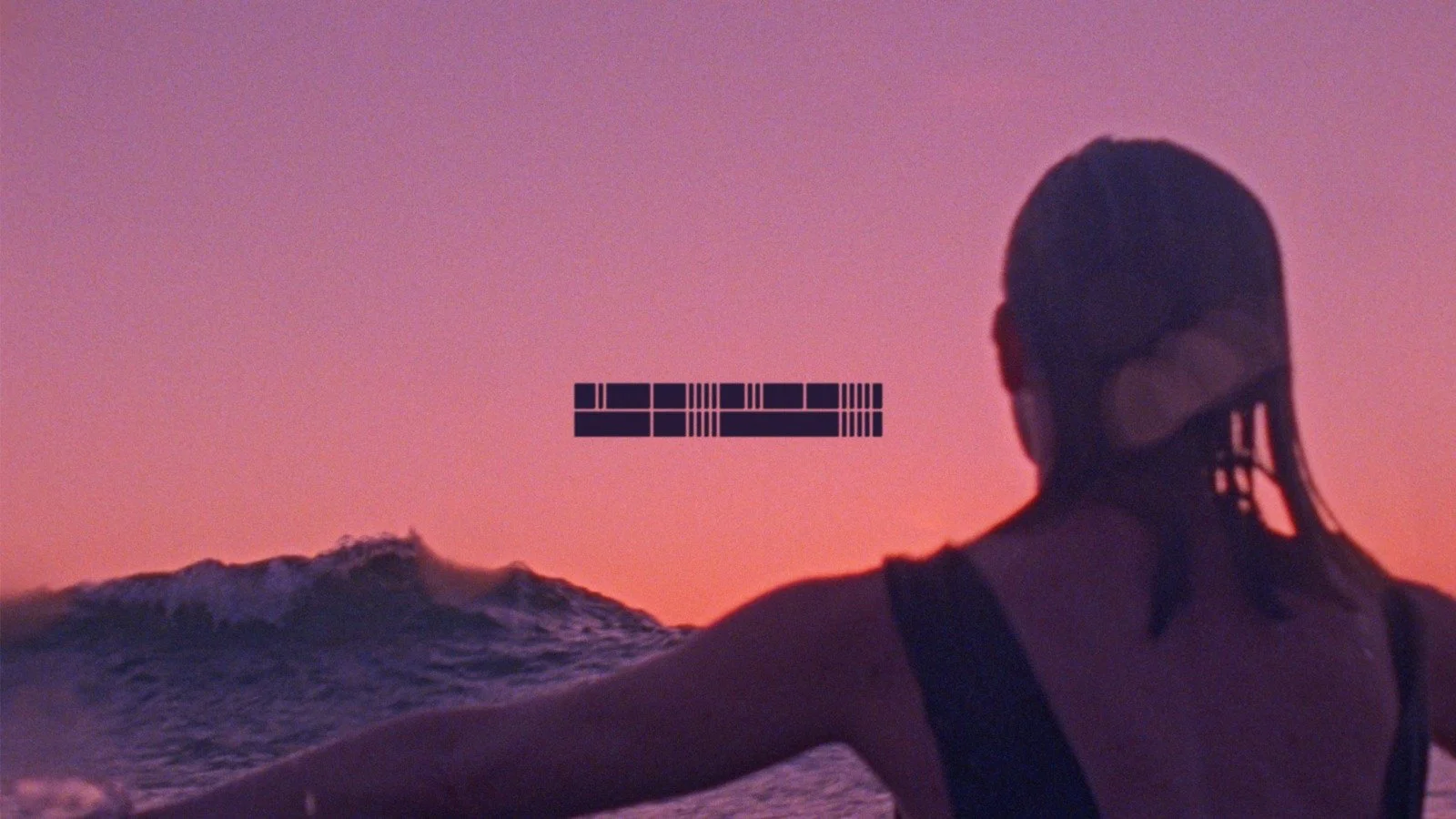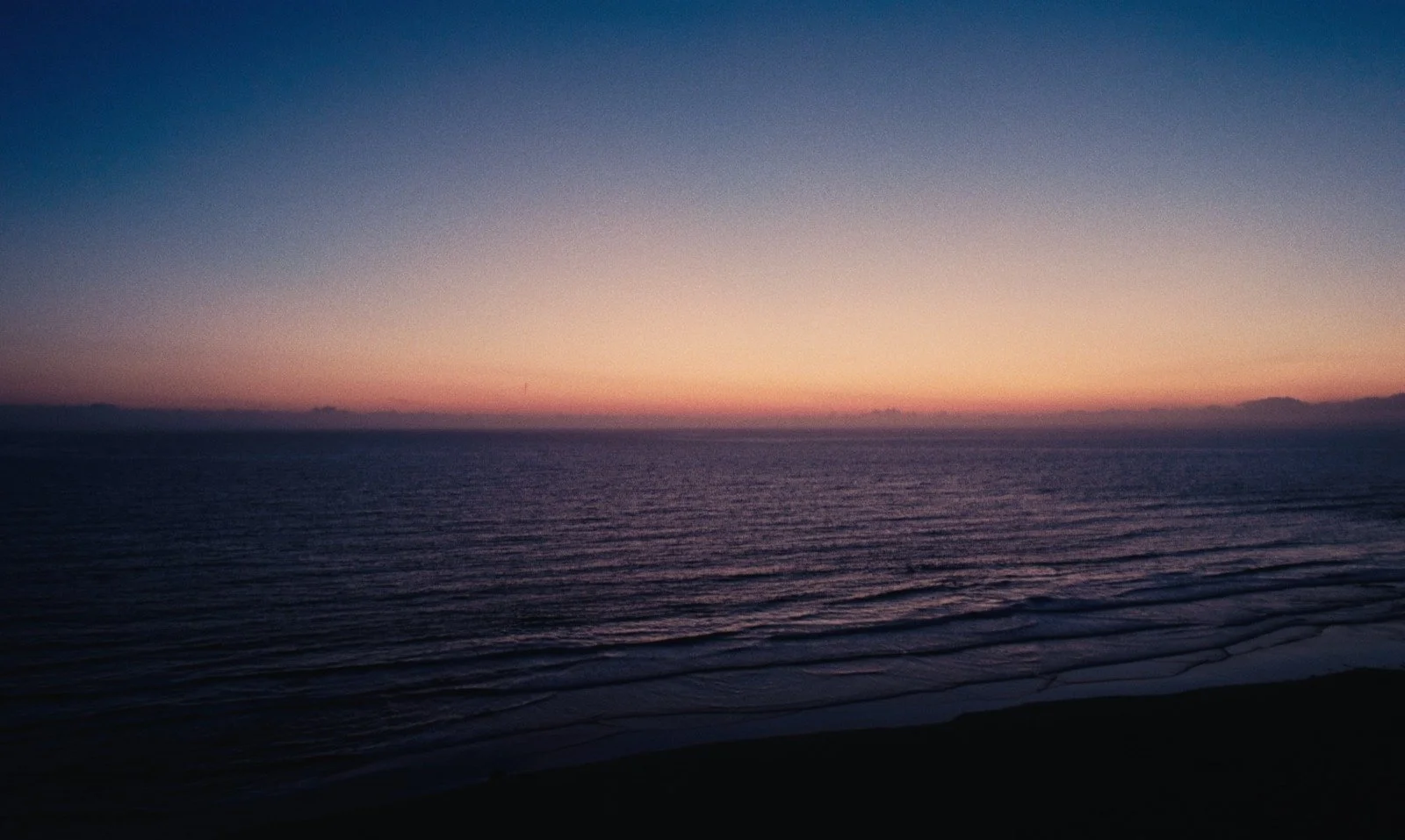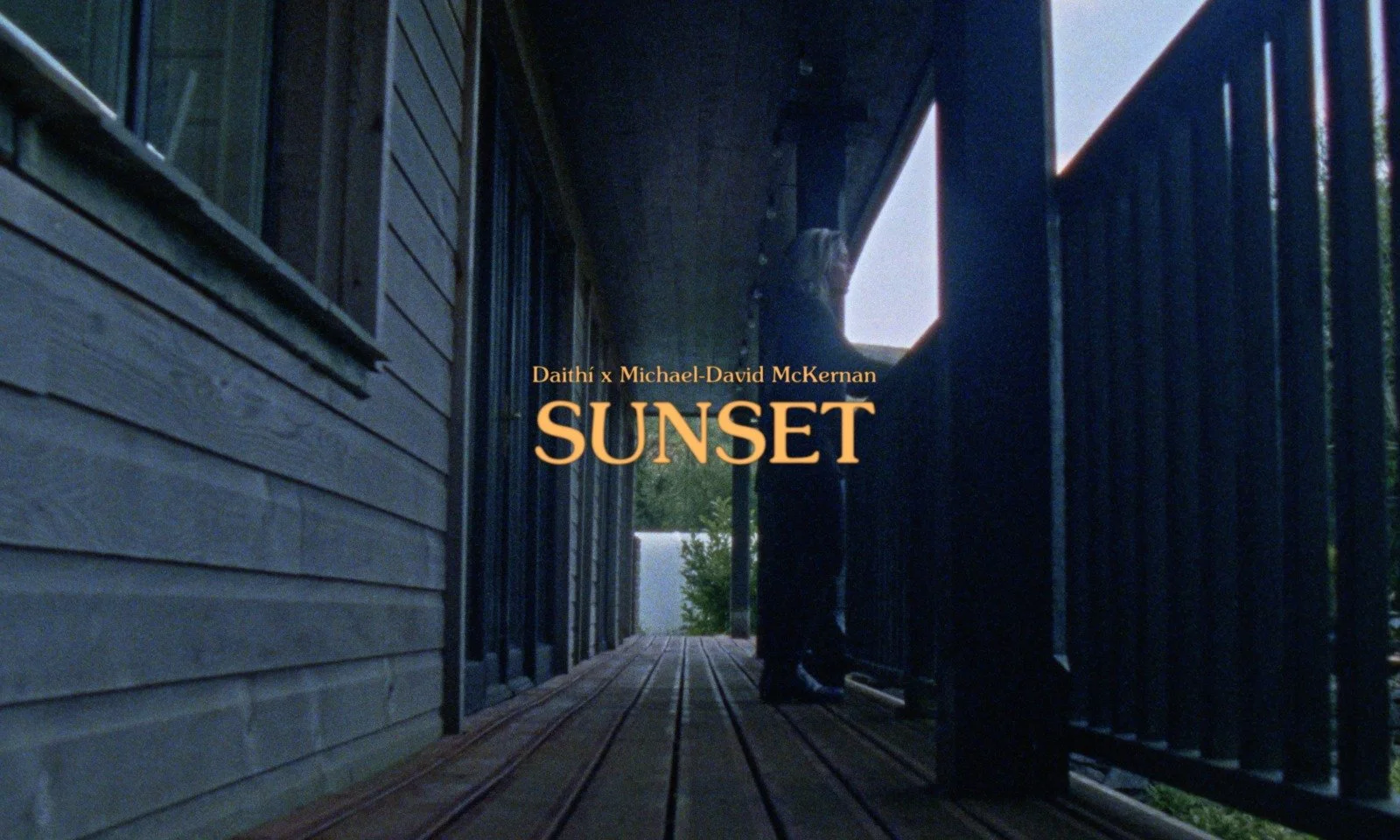In Her Heyday: Annie Ryan
9 minute read
Director, actor, adaptor and teacher, Annie West was introduced to me via the production of Daithí’s beautiful new music video; Sunset. In this evocative piece of film Annie is the protagonist - a woman in midlife - beautifully holding her emotion in her face as she drives to the sea, alone to swim. It’s one for the sea-swimmers among us, it’s one for all of us who recharge in nature and recognise that look she wears - the look of a life lived fully: the grief, the pain, the wisdom, the hard-won freedom, the independence, the sense of self.
The video was shot on film at The Beekeepers artist retreat in Daithí's native Co. Clare. Daithí owns The Beekeepers and runs it with his partner, the filmmaker Norma Howard, who is the producer of this video. Watch it - you’ll see what I mean. And read on below, for one of my favourite interviews since Heyday began…
Annie grew up in Chicago and trained in physical theatre and acting. She was part of New Crime Productions in Chicago in the early 1990s, where she was introduced to the style of Commedia dell’Arte that became the trademark of her theatre company, The Corn Exchange.
Founded in Dublin in 1995, The Corn Exchange has won international acclaim for its unique ensemble style. Work includes her adaptations of Arthur Miller’s The Misfits and Eimear McBride’s award-winning novel A Girl is a Half-Formed Thing and most recently, James Joyce, Dubliners.
Outside of The Corn Exchange, she has directed for Shakespeare’s Globe in London, the Abbey, The Gate Theatre and has performed in theatre and film in the US and Ireland and continues to teach professional actors, young people and corporate clients throughout Ireland. She shadow-directed Lenny Abrahamson on Normal People and is currently in development with several projects for stage and screen.
Accomplishments aside, Annie is a curious, creative and contemplative woman in her midlife and this sequence of answers are right up there as perhaps my favourite in the In Her Heyday series -the reason for that is how she so eloquently articulates the midlife experience - full to the brim of that wit, wisdom and experience that makes us all softer, yet stronger - it’s the effect of the waves in this sea of life perhaps, that endless flow, the rise, the fall, the continuation…
Which three adjectives describe you best?
I’m not sure that’s for me to answer. I feel like I’m constantly aspiring toward something; wondering; in awe of the beauty and horror of our world…and our capacity to hold each other with compassion brings me to my knees.
What is on your mind most these days?
The war in Europe, the downfall of America…I’m largely taken up with the question of how can I be of service somehow. I’m mainly dedicated in my work to empowering women’s stories.
What is the last thing that you said no to?
The offer of a second pint.
What is the last thing you said yes to?
The offer of the first one.
How old are you?
52.
What made you decide to do what you are now doing in your life?
My first love was acting. I think it saved my life in a way, at that delicate age of about 12. I found my tribe.
After some success in theatre and film in the US as a young one, I was wary of following my friends to LA. I had already had my #MeToo moment at 17, and although I was full of fire and fearlessness at 20, it was probably a mix of trepitation and curiosity that sent me the other direction – to Dublin.
I spent a year in Trinity and was totally enthralled by the humour, the turn of phrase, the scale of the city. I knew very early on that my training in Chicago in physical theatre was something I could offer to Ireland in the early 90s, which was then a place where there was almost no acting training at all, and certainly very little by way of improvisation.
How many things have you been in your life so far?
I began training in acting and improvisation at 12, working professionally at 14. Soon after I decided to come to Dublin (In 1992 – 30 years ago! Good God!). The amazing Mikel Murfi had just returned from Le Coq, Paris’s famous physical theatre school, and ran a workshop for actors with various physical theatre techniques. It was there really that I started teaching and soon after that, Tonie Walsh, who was running raves in the Ormond Multi-media, invited us to perform. I was inspired by the rusty sign outside the Corn Exchange Building on the quays to create a company to exchange physical theatre practices that have at its core a deep commitment to embodied truth and would do anything for a cheap gag. So The Corn Exchange was born.
We did our first proper show for the first Dublin Fringe in 1995 and here we are. It was a very organic trajectory. I had long aspired to make films, but my commitment to The Corn Exchange took precedence for a few decades.
I’m now moving into the freelance world, making work through the company more sporadically, growing my teaching practice and listening out for opportunities to develop in screen work; and also, most surprisingly, to perform again, like in this beautiful music video for Dáithí.
Where do you come in your family, and did this have any influence on you?
I’m the eldest girl, of an eldest girl, of an eldest girl. Even though we’re just over a year apart (Irish twins), we’ve both been very much in those roles, which has been a challenge to overcome.
Are you where you wanted to be at this stage in your life?
I remember a pal some years ago looking under the table, in her bag, saying “Where is my international career?” My kids are nearly reared now and after 25 years of total devotion to Irish theatre, I am very much ready to expand beyond this dark, beautiful little island.
That said, I’ve been incredibly blessed to have become a maker of work and part of such a rich community of artists. We’re sort of the last bohemians in leafy Dublin.
What is the best, and worst piece of advice you have received in your life so far?
My mother was almost delusional in her optimism. I was raised with the mantra: You can do anything. Proper New York girl. And while I know that she was really right all along, the greatest harm I did myself was to look for reasons why that couldn’t be the case. Now that that fiery powerhouse of a mother has passed to the other side, I no longer feel I have to counter her optimism. I’ll take the energy of her cheerleading.
I’ve gotten a great deal of solace and help from the great teachers of the wisdom traditions, particularly Buddhist teachers like Thich Nhat Hanh, Pema Chodron and Tara Brach. Above everything, to completely surrender to what is actually unfolding now is the most profound, maybe the only important thing to keep remembering. Our minds sabotage us again and again, pulling us into the past and the future with ‘if onlys’ and ‘what ifs’. If we can let go of the stories we tell ourselves and open to the fact of our shared breath, of the gravitational pull of the Earth, of the awe of this moment, we can learn to cultivate peace and freedom.
What does midlife feel like to you?
I honestly can’t believe I’m in my 50s. It might be because my lifestyle is still caught up in bombing around Dublin on my bike doing plays, like I’m 25. That said, I love waking up early, I love sea swimming, I love solitude.
Has there been a place, event, or experience that has transformed you or given you a new perspective? And what changed after that?
Professionally, the show Street of Crocodiles by Théâtre de Complicité, which played at Dublin Theatre Festival in 1994, set me on a trajectory to making transformational, ensemble-based physical theatre.
Becoming a mother was – is! – a constant state of shifting perspectives and humbling, heart-stopping awe. I had two miscarriages, two children. The many thresholds we live through as women is astonishing.
I heard someone describe women as the life force itself. I like to think it’s the feminine in us all that is the life force and the masculine energy is there to contain, to push, to encourage the life force to manifest. Our job now is to shift the masculine energy in our world from dominance to nurturance. A tough ask when witnessing the grotesque show of destruction now.
People talk a lot about pivoting these days, of all the 'switches' you've made, which has been the most powerful change for you personally?
I think it’s just to follow my own path, step-by-step. It’s always been that. And to allow for deep rest. For full surrender.
I do think our culture is at last moving away from the illusion of a singular, linear trajectory, which has been the terrible legacy of the patriarchy. We are cyclical creatures. Like all of life, we spiral. We must shed, let go, go inward, dormant, in order to nurture whatever seeds within us that flourish.
Is there a milestone you are working towards in your personal or professional life at the moment?
Yes, I’m working towards establishing myself as a filmmaker. But I’m aware of the societal push that creates the illusion of some kind of stepladder. It’s going to be much messier than that. Much richer, much more surprising.
Do you feel your creativity is surging or sinking in midlife?
Surging. There’s no point in seeing it any other way. Overall, we keep evolving.
Actually, it surges and wains. Like waves. Like the breath. Like the cycles of the moon. Everything comes to a moment of fruition and then must receed and die away. We must embrace and celebrate not only our moments of active creativity, but also the moments of moving back into the shadows to rest. Our culture loves summer, achievement, that masculine energy of action, but the feminine is just as important – to rest, to recalibarate. We’re in the energy of the summer solstice here in the Northern Hemisphere, and wow, it’s very full on. But we must let things peak and then fall, and then move into the dark of winter. It’s there that the seeds of new growth are nurtured.
How do you think the world of work can improve for women?
We must continue to lift each other up, to counter the patriarchy and the misogyny that all of us carry within ourselves. We must call it out when we listen to women degrade themselves or their work. We must encourage, nourish, make way, empower our girls. And our boys too. The survival of our species depends on us all embracing one another with respect, with compassion.
One way of doing this is to allow ourselves and to encourage others to rest.
What do you spend too much time doing? And what do you spend too little doing?
I love Yoga Nidra. Try it out on YouTube. More rest, more time in nature, more connection to this beautiful planet and the creative nature we can express.
And keep a light touch. Have the craic!
How do you care for your own wellbeing?
I am happiest when I go to bed early and wake up in the quiet house on my own. I love practicing gentle yoga, meditation, eating well. Some day I’ll garden, but for now I’m just enjoying the swell of the trees in midsummer.
What do you feel free of now that you are at this life stage?
I do my best to say no when I mean no and yes when I mean yes.
Here’s a good one by Elisabeth Lesser:
“Do no harm and take no shit.”
What gives you the most stress at this life stage?
Sadly, I still worry that I never made any money. I joke that we forgot to buy a house. And if I cared more about money, I’d probably have some by now.
It’s been so interesting to revisit Joyce’s Dubliners and the stagnation and poverty of imagination those stories highlight. It must come from being the first colony. I would love to see Ireland take action to protect its renters.
Do you sleep well?
Yes, but I sleep much better when I don't drink. That’s not so easy when doing plays in Dublin. I’ve allowed the odd drink during this latest run. A bit of craic; it’s nice to join the gang, but I’m very much looking forward to going back to my routine of early morning yoga, sea swimming and general wakefullness.
Do you take any supplements or HRT?
No, still cycling around.
What advice would you offer to yourself in your 20’s, 30’s and 40’s?
I would gather all those girls up in blankets, like I’m an old loving granny and tell them all they’re doing great as they are. All of those past selves are in us. They feed our repetitive thinking. And they do need to be looked after still. That little 7-year-old, 11-year-old, 31-one-year old. I love that Buddhist teaching of inviting your demons to tea. I usually think of it as sitting my furious inner teen down on a sunny bench for an ice cream. Sounds so bonkers, but actually, just to really listen and let them rail and soon enough, they calm down.
All you can do is to follow what feels like the next right thing. And be kind, be kind, be kind. To yourself first and that will radiate outward from there.
Did you ever feel lost in your life path? How did you find your way again?
Oh yes. I’m still a little lost. I think when you settle in a place you didn’t grow up there’s a rootlessness that never goes away. I’ll never be from here, even if I’m genetically from the bog.
Maya Angelou said it best. ‘I belong nowhere and everywhere.’
I actually think feeling like a misfit has been the greatest gift to my creative life. The places in us that feel lost, broken, that will never fit, are the very places to connect us to the suffering pretty much everyone else feels. It’s an illusion that our drama is ours alone. When we can connect with that hole in our hearts, with our longing, but without fear, it can be our greatest resource, our greatest teacher.
When do you feel truly alive?
I feel most alive when I lose myself completely in the full flow of creative work. And also on my solo journeys to the West of Ireland, hanging off the cliffs on Inis Meáin. Bliss.
What do you consider your biggest achievement?
My boys. And the fact that I’m still at it.
What was a major turning point in your life?
The first was my decision to move to Dublin 30 years ago. Another was in 2010, when at the height of my creative powers as a theatre maker, the Arts Council cut my company’s funding in half. I think it was to do more with internal politics and policy than a comment on the actual work, but it was a real challenge to find out how to progress within the form. Essentially, one’s bank balance or grant level can never be measured against one’s true worth.
What are you looking forward to?
I’m looking forward to all kinds of new adventures ahead – learning about making and editing films, travelling to new places, new creative collaborations, eventually gardening. Not giving a fuck, which is apparently the promise of post-menopausal life.
Are you a good friend?
I hope so.
Any regrets?
I don’t believe in regrets. What’s done is done, I learn from it and move on.I spent a long time worrying about things. I still do – money, what creative promise have I cut off by living in such a small country.
What are you afraid of?
When the demons are at me, it’s about a sense of failure, missed opportunity, not doing enough, comparison to others…
I love John O’Donohue’s morning prayer:
May I have the courage today
To live the life that I would love,
To postpone my dream no longer
But do at last what I came here for
And waste my heart on fear no more.
Knowing what you know now, what is most important in life?
I think everything points to wanting to live and love with a sense of freedom.
Favourite book, and why?
I don't have a favourite book or piece of music, but I loved adapting A Girl is a Half-formed Thing by Eimear McBride. And I love the collection The End of the World is a Cul de Sac by Louise Kennedy. Love Emilie Pine’s Notes to Self and her new novel Ruth & Pen. I recently returned to Victor Frankle’s Man’s Search for Meaning, which is astonishing.
Favourite piece of music, and why?
That’s easy. My boy Ollie West dropped a little album during Covid at 16. Check out We Can See Blue on Spotify. (Made on my old iphone during the pandemic rather than doing maths on Zoom).
And I love Dáithí’s Sunset, which I had the honour of embodying in video by Michael-David McKernan.
Last time you cried (tears of joy count!)
I recently directed Joyce’s Dubliners and the last speech of The Dead gets me every time.
Yes, the newspapers were right: snow was general all over Ireland. It was falling on every part of the dark central plain, on the treeless hills, falling softly upon the Bog of Allen and, farther westward, softly falling into the dark mutinous Shannon waves. It was falling, too, upon every part of the lonely churchyard on the hill where Michael Furey lay buried. It lay thickly drifted on crooked crosses and headstones, on the spears on the little gate, on the barren thorns. His soul swooned slowly as he heard the snow falling faintly through the universe and faintly falling, like the descent of their last end, upon all the living and the dead.
How do you draw on your own inner strength and creativity?
One breath at a time. And practice, practice, practice.
Are you fulfilled?
When I remember to allow myself to give in to the gravitational pull of the Earth, where else would I belong? When I remember that this breath is shared with every living thing that is and ever was, what more could I ask? Even with all the work to be done, all the wrongs to be righted, this practice of remembering to circle back to the here and now connects us to the fullness of our living, dying world. It’s our ticket to peace, to love, to freedom.
Ellie Balfe talks to Annie Ryan, June 2022.
what do you think dear reader? tell us in the comment box down below and let’s chat!
join the conversation
share and comment below, we’d love to hear your thoughts…
